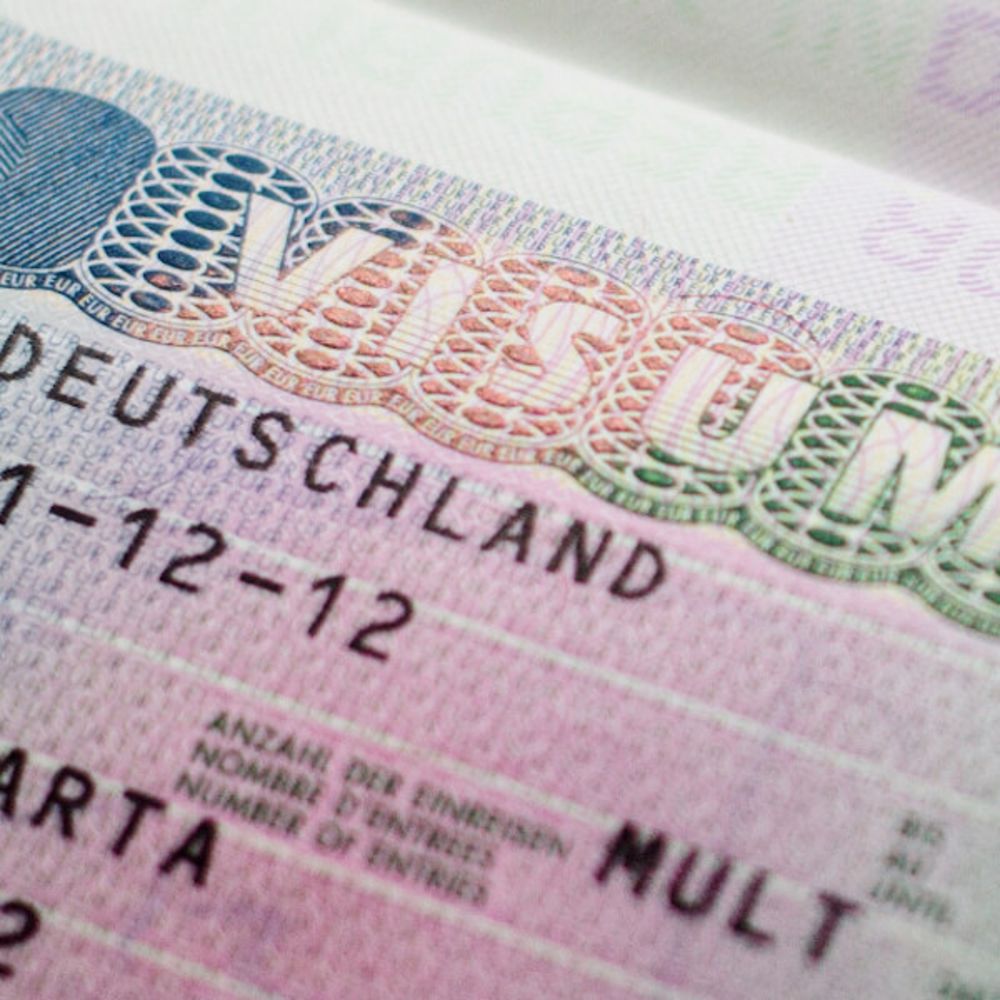
Visa für Deutschland
Benötigen Sie ein Visa für Deutschland?
Ausländer, die sich länger als 90 Tage in Deutschland aufhalten möchten, in Deutschland arbeiten oder studieren wollen, benötigen grundsätzlich ein Visum. Ausgenommen hiervon sind EU-Staatsangehörige der Länder
- Belgien, Bulgarien, Dänemark, Estland, Finnland, Frankreich, Griechenland, Großbritannien, Irland, Island, Italien, Kroatien, Lettland, Litauen, Liechtenstein, Luxemburg, Malta, der Niederlande, Norwegen, Österreich, Polen, Portugal, Rumänien, Schweden, der Slowakei, der Schweiz, Slowenien, Spanien, der Tschechischen Republik, Ungarn und Zypern.
Alle Nicht-EU Bürger benötigen ein Visum. Dieses muss üblicherweise vor der Einreise bei der zuständigen deutschen Auslandsvertretung beantragt werden.
Bitte bewerben Sie sich frühzeitig um ein Visum für Ihren Deutschkurs. Die Bearbeitung kann bis zu 3 Monaten in Anspruch nehmen. Wenn Sie zu Ihrem Deutschkurs in Deutschland mit einem Touristenvisum einreisen, kann dies unter keinen Umständen verlängert werden. Mehr Informationen zur Erteilung eines Visums erhalten Sie auf der Webseite des Auswärtigen Amts.
Information in english
It is very probable, depending on your country of origin, that you will require a visa for your stay in Germany. Here is some information to help you judge your status. Definitive information for your particular case can be obtained from the german authorities in your country (list available here) or Foreign Ministry.
We will provide all documents needed for visa application. The “letter of invitation" will be sent only after we have received full payment for the programme. In case of visa denial, inlingua will retain 250,00 € as a handling fee. We recommend to send the documents by Express mail for an additional charge of 160,00 €.
EU citizens do not require a visa, they are only required to hold a valid passport when travelling Germany. The following countries are EU member states: Belgium, Denmark, Estonia, Finland, France, Greece, Great Britain, Ireland, Italy, Latvia, Lithuania, Luxembourg, Malta, Netherlands, Austria, Poland, Portugal, The Republic of Slovakia, Slovenia, Spain, Sweden, The Czech Republic, Hungary and Cyprus (Greek Cyprus).
Any application for a language learning visa must be submitted to the relevant immigration authorities in you country of residence before travelling to Germany and approval must be obtained from the relevant immigration authorities here in Germany. EU citizens do not need a visa and exempt are also citizens from EEA countries as well as Switzerland, Australia, Israel, Japan, South Korea, Canada, New Zealand and the USA who can obtain a residence permit from the immigration authorities after they have entered Germany.
We will do everything we can to assist you in your application. In order to apply for a language learning visa it is necessary to register for, and be accepted on a course. After we have received your registration and deposit (see Terms and Conditions), we will send you the official confirmation of your registration on the language course which you will need for your visa application. The embassy will require this in its original form in order to process your visa application. Furthermore, the applicant is required to provide proof that he/she ís able to support himself/herself financially during the stay in Germany. The applicant has no right to claim any public funding in order to finance the time in Germany. Should the applicant be unable to finance travel and living expenses by his/her own means, a resident German host can also agree to accept responsibility for all charges and expenses accrued by the applicant during his/her stay. According to paragraphs 82 ff..AusIG of German law, the German Immigration authorities are responsible for registering and recording such a declaration of financial liability.
All applicants must personally submit the visa application, with all the necessary documentation, to the appropriate German immigration office in their country of residence before entering Germany. Applicants should contact the relevant German embassy in their home country as early as possible and enquire about the specific local regulations with regard to application procedures as these can differ greatly from country to country. Applicants must be aware that the process can be time consuming and in some cases take up to four months to process their applications fully. inlingua will however give you whatever assistance we can. Mail us if you need help: info@inlingua-berlin.de .
Citizens from all other countries must, without exception, apply for a visa before travelling to Germany, even if their stay is shorter than three months. Further information can also be obtained at the ministry of foreign affairs
All foreigner visitors who are intent on staying for longer than a three month period must obtain a visa. Applications for a visa must always be submitted to the relevant German authorities in your country of residence before travelling to Germany. Approval must also be given by the relevant immigration authorities in Germany. The only exemption applies to EU citizens and citizens from EEA countries as well as Switzerland, Australia, Israel, Japan, South Korea, Canada, New Zealand and the USA who can obtain a residence permit from the immigration authorities after entry into Germany.
Sie möchten mehr erfahren?
Wenn Sie neugierig geworden sind und gern mehr über germancourses Berlin bzw. inlingua Berlin wissen möchten, rufen Sie uns doch einfach an unter +49 030 88471190 oder schreiben uns an info@inlingua-berlin.de. Wir freuen uns auf Sie!